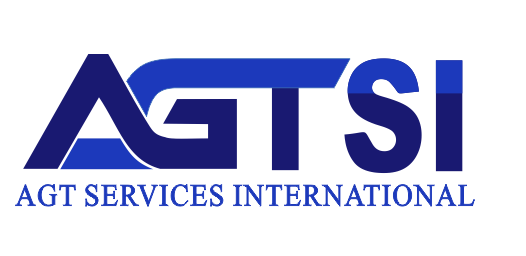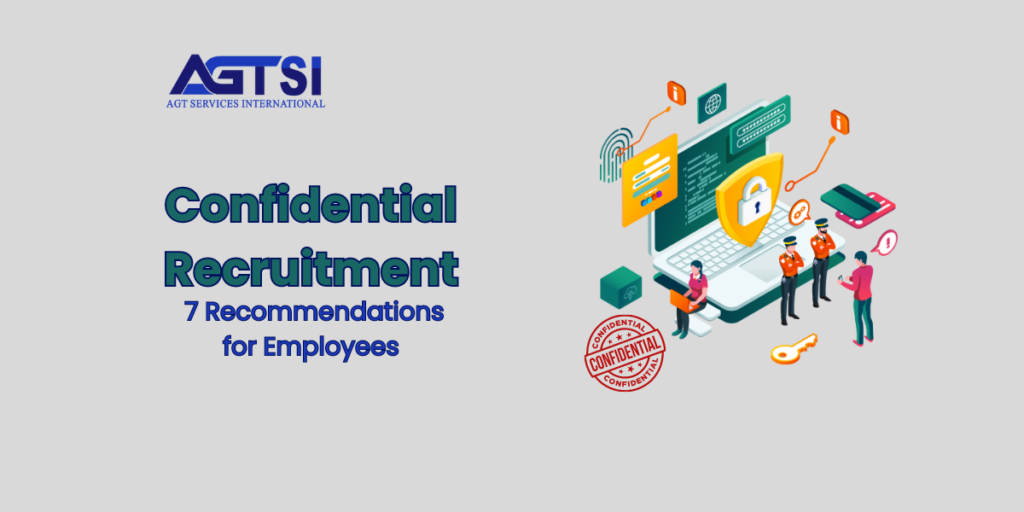In today’s competitive business environment, maintaining confidentiality during employee replacement is essential. Confidential recruitment services provide a diplomatic method to recruit new employees without interrupting the current workforce or causing unnecessary speculation. This article manages key questions about confidential recruitment services and offers valuable tips for employees involved in the process.
Understanding the Scope of Confidential Roles
A confidential role is a job position where the employee has access to sensitive information regarding the company, its employees, or its business strategies. Hiring for such roles demands a high level of control to protect this information. Confidential roles are important in various departments, including human resources, finance, and executive management.
Ensuring the confidentiality of these roles is vital to safeguarding the company’s strategic interests and maintaining trust within the organization. This promoted level of secrecy helps protect sensitive information and maintains the integrity of the company’s operations.
The Importance of Confidential Employees in Organizations
A confidential employee is someone who has access to sensitive information about the company. It includes human resources staff who handle private employee records, executive assistants managing sensitive communications and documents for top executives, and finance personnel responsible for financial records and strategic plans.
Confidential employees play an important role in maintaining the integrity of the company’s confidential information. Their intention and observation of confidentiality agreements are essential in protecting the company’s strategic interests and ensuring the smooth operation of the business.
Decoding the Steps to Acquiring Fresh Employees
Recruiting new employees involves several important steps, from identifying the need for a new hire to integrating them into the organization. With confidential recruitment services, the process is designed to be careful. Begin by clearly defining the role and outlining the responsibilities, qualifications, and experience required. Engage a recruitment firm specializing in confidential searches to ensure the process remains under wraps.
Use careful advertising methods that do not reveal the company’s identity. Screen candidates thoroughly with background checks and interviews while maintaining mystery in all communications and interviews. This approach ensures a seamless and confidential hiring process.
The Role of Confidentiality Procedures in Organizational Security
A confidentiality procedure outlines the steps and measures taken to ensure that sensitive information remains unknown during the recruitment process. Key components include access control, limiting access to confidential information to trusted individuals only, and secure storage, ensuring all documents and communications are kept safe. Regular audits are completed to ensure compliance with confidentiality agreements.
These procedures help protect sensitive information and maintain the confidentiality of the recruitment process, ensuring that all involved parties stick to the highest standards of security and intention.
Understanding the Concept of Confidentiality in Job Roles
Confidentiality in job roles refers to the expectation that employees will protect sensitive information they experience as part of their job. It means adhering to nondisclosure agreements (NDAs), maintaining the privacy of work-related information, and upholding professional conduct. Employees must ensure that they do not share confidential information with unauthorized persons.
This responsibility is compulsory for maintaining the trust and goodness of the company’s operations. By upholding these standards, employees help protect the company’s sensitive information and maintain a professional work environment.
The Role of Confidentiality in Job Interviews: An Overview
Confidentiality in the job interview process means protecting the identities of both the employer and the candidates. It helps protect sensitive information and controls unnecessary disturbances within the company. Secure communication channels, such as hidden email and private messaging, are essential.
Conduct interviews in off-site locations or via secure virtual platforms to maintain privacy. Execute nondisclosure agreements (NDAs) requiring candidates to keep information about the job and hiring process confidential. These measures help ensure a secure and private interview process, protecting both parties involved.
7 Guidelines for Employees in Confidential Recruitment
Below are some guidelines for employees in confidential recruitment.
1. Preserving Confidentiality and Professionalism
Confidentiality in job roles refers to the expectation that employees will protect sensitive information they experience as part of their job. It means adhering to nondisclosure agreements (NDAs), maintaining the privacy of work-related information, and upholding professional conduct. Employees must ensure that they do not share confidential information with unauthorized persons.
This responsibility is compulsory for maintaining the trust and goodness of the company’s operations. By upholding these standards, employees help protect the company’s sensitive information and maintain a professional work environment.
For more information, click here.
2. Avoid Conversations Regarding Recruitment Affairs
One of the most important characteristics of confidential recruitment is to avoid conflicts regarding recruitment affairs with colleagues or external parties. Loose conversations, even clearly harmless ones, can lead to the accidental exposure of sensitive information.
Maintaining silence about the specifics of the recruitment process helps protect the integrity of the search and prevents any potential disruptions within the company. By keeping recruitment discussions limited to authorized personnel only, employees uphold the confidentiality and security of the entire process.
3. Compliance with Confidentiality Protocols
Follow all confidentiality protocols and procedures set by the company. These protocols are designed to protect sensitive information and ensure that the recruitment process remains secure. Please familiarize employees with these guidelines and make sure to attach them strictly.
It includes signing any required nondisclosure agreements and following the company’s procedures for handling confidential documents and communications. Sticking to these protocols is essential for maintaining the trust and integrity of the recruitment process.
4. Utilizing Encrypted Communication Channels
Use secure, private channels for communication to protect sensitive information. In today’s digital age, it’s important to use communication tools that offer encryption and security features. Avoid using personal email or messaging apps for recruitment-related communication. Instead, use company-approved, secure communication platforms that ensure the confidentiality of messages.
It helps prevent unauthorized access and protects sensitive information from being blocked. Ensuring secure communication is a necessary step in maintaining the confidentiality of the recruitment process.
5. Stay Neat and Tidy with Private Documents
Stay organized by keeping all confidential documents and communications well-organized and secure. Proper document handling is important in confidential recruitment. Ensure that all physical and digital records are stored in safe locations, accessible only to authorized personnel.
Use password-protected files and encrypted storage solutions for digital documents. For physical documents, use locked cabinets or safe rooms. Keeping everything organized and secure helps prevent accidental disclosure and ensures that sensitive information is handled appropriately.
6. Seeking Assistance When Required
Seek guidance from the HR department or legal team when in doubt. If employees are ever unsure about how to handle a particular situation or document, it’s always best to seek advice from professionals. The HR department and legal team are there to help guide the complexities of confidentiality and ensure compliance with company policies and legal requirements.
Asking for guidance enables employees to avoid mistakes that could compromise the confidentiality of the recruitment process. It’s better to be cautious and seek help than to risk breaching confidentiality protocols.
7. Facilitating a Secure and Effective Process
The confidential recruitment process runs smoothly and securely, maintaining the integrity of the company’s operations. By maintaining intention, adhering to protocols, using secure communication channels, handling documents properly, and seeking guidance when necessary, you contribute to a successful and confidential recruitment process. These practices protect the company’s interests and ensure that the recruitment process is conducted with the highest level of integrity and security.
Final Thoughts
Confidential recruitment services are essential for companies looking to replace employees without causing a disturbance or revealing their intentions ahead of schedule. Understanding the importance of confidentiality, the procedures involved, and the roles of those who handle sensitive information provides a smooth and detailed recruitment process. By following best practices and maintaining a high standard of professionalism, businesses can protect their interests and make informed hiring decisions. This approach not only protects the company’s strategic interests but also ensures a seamless transition during employee replacements.



















